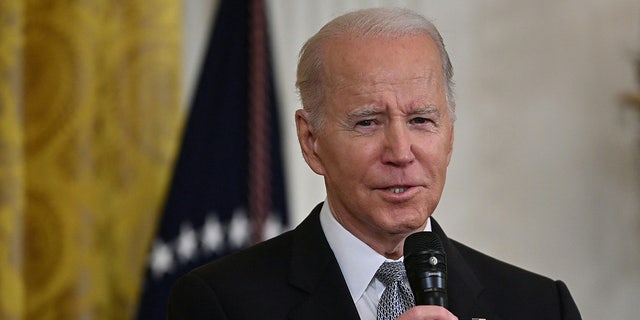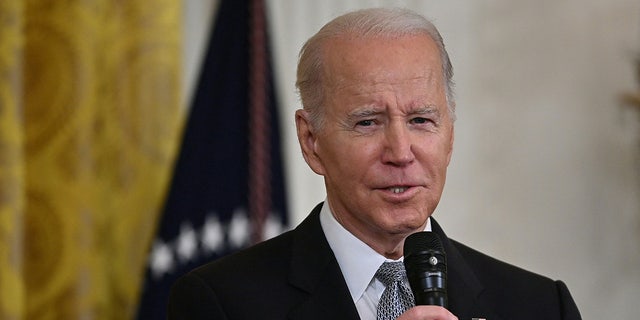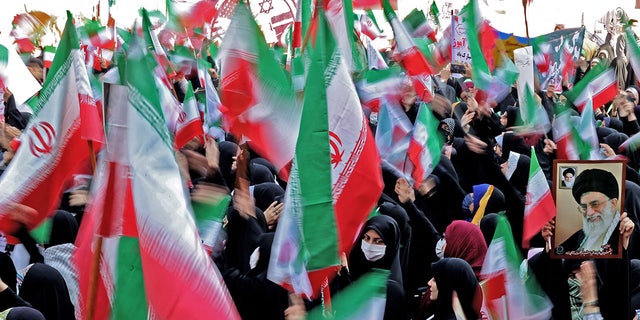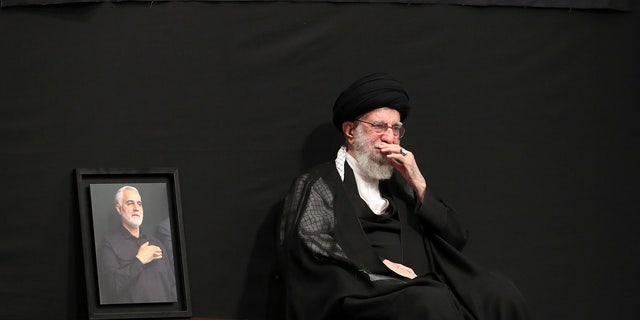
President Biden has secured a $6 billion deal to free Americans in exchange for jailed Iranians.
The New York Times first reported the prisoner swap agreement Thursday. Once five Americans imprisoned in Iran are allowed to return to the United States, the Biden administration is said to have agreed to release a handful of Iranian nationals serving prison sentences for violating sanctions on Iran.
Sources told the Times the United States also agreed to unfreeze nearly $6 billion of Iran’s assets in South Korea, transferring the funds into an account in the central bank of Qatar.
The American prisoners include Siamak Namazi, Emad Sharghi and Morad Tahbaz, who the U.S. government says were all wrongfully detained on bogus spying charges. The names of the other two were being withheld by their families, but one is said to be a scientist, the other a businessman.
“We have received confirmation that Iran has released from prison five Americans who were unjustly detained and has placed them on house arrest,” National Security Council Spokesperson Adrienne Watson said in a statement. “While this is an encouraging step, these U.S. citizens – Siamak Namazi, Morad Tahbaz, Emad Shargi, and two Americans who at this time wish to remain private – should have never been detained in the first place.”
“We will continue to monitor their condition as closely as possible. Of course, we will not rest until they are all back home in the United States,” the statement added. “Until that time, negotiations for their eventual release remain ongoing and are delicate. We will, therefore, have little in the way of details to provide about the state of their house arrest or about our efforts to secure their freedom.”
“We are relieved to learn that Iranian authorities have released five U.S. citizens — Siamak Namazi, Morad Tahbaz, Emad Sharghi, and two individuals who at this time wish to remain private — from prison to house arrest,” State Department Spokesperson Matthew Miller also said in a statement. “We are in touch with the families of U.S. citizens involved, and we continue to monitor these individuals’ health and welfare closely. While we welcome the news of these individuals’ release from prison to house arrest, they should never have been imprisoned in the first place. We continue to work diligently to bring these individuals home to their loved ones. They must be allowed to depart Iran and reunite with their loved ones as soon as possible.”

President Joe Biden speaks during a Nowruz reception celebrating the Persian New Year at the White House on March 20, 2023. The New York Times first reported about an Iranian prisoner swap Thursday. (RICHARD PIERRIN/AFP via Getty Images)
When asked when the American hostages might be released, a source familiar with the situation told Fox News, “We expect this process to take weeks before they return home to U.S.”
According to the Times, Namazi, Sharghi, Tahbaz and a fourth American were transferred from the notorious Evin Prison to a hotel in the Iranian capital of Tehran, where they will be detained for another few weeks before being allowed to board a plane.
The fifth person, an American woman with dual Iranian citizenship, is said to already have been released on house arrest earlier this year, the Times reported.
U.S.-based lawyer Jared Genser also acknowledged the move to the Associated Press.
“The move by Iran of the American hostages from Evin Prison to an expected house arrest is an important development,” Genser said in a statement. “While I hope this will be the first step to their ultimate release, this is at best the beginning of the end and nothing more. But there are simply no guarantees about what happens from here.”
Sharghi’s sister, Neda Sharghi, also acknowledged the transfer.
US DEPLOYS MORE THAN 3K SAILORS, MARINES TO MIDDLE EAST FOLLOWING IRAN’S TARGETING OF SHIPS

Iranians wave their country’s national flags during a rally outside the former US embassy in Tehran on Nov. 4, 2022. ( ATTA KENARE/AFP via Getty Images)
“My family has faith in the work that President Biden and government officials have undertaken to bring our families home and hope to receive that news soon,” she said in a statement to the AP. “Until that point, I hope you can understand that we do not think it will be helpful to comment further.”
The prisoner swap agreement, mediated by Oman, Qatar and Switzerland, is to be carried out over a series of coordinated steps. The three released prisoners cited by Genser whose identities are known are Namazi, who was detained in 2015 and later sentenced to 10 years in prison on internationally criticized spying charges; Shargi, a venture capitalist sentenced to 10 years in prison; and Tahbaz, a British-American conservationist of Iranian descent who was arrested in 2018 and also received a 10-year sentence.

Iranian Supreme Leader Ali Khamenei attends a mourning ritual on the month of Muharram on the Islamic calendar in Tehran, Iran on July 29, 2023. Iran and the United States have agreed on a prisoner swap. (Iranian Leader Press Office/Anadolu Agency via Getty Images)
The move comes amid months of heightened tensions between Iran and the U.S. A major American military buildup in the Persian Gulf is underway, with the possibility of armed U.S. troops boarding and guarding commercial ships traveling through the crucial Strait of Hormuz, through which 20% of all oil traded passes.
Iranian media in the past identified several prisoners of interest with cases tied to violations of U.S. export laws and restrictions on doing business with Iran.
CLICK HERE TO GET THE FOX NEWS APP
The alleged violations include the transfer of funds through Venezuela and sales of dual-use equipment that the U.S. alleges could be used in Iran’s military and nuclear programs. Iran has been enriching uranium and stockpiling it as part of its advancing nuclear program.
Iran also wants access to assets frozen abroad, particularly some $7 billion in Iranian assets tied up in South Korean banks. Already, Tehran seized a South Korean oil tanker amid the dispute and threatened further retaliation in August.
Fox News’ Nick Kalman, Caroline McKee and the Associated Press contributed to this report.







